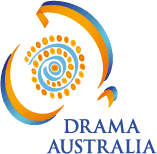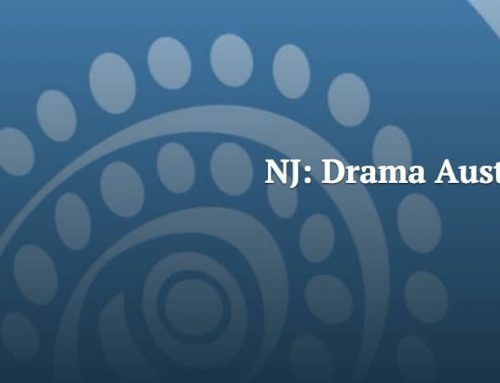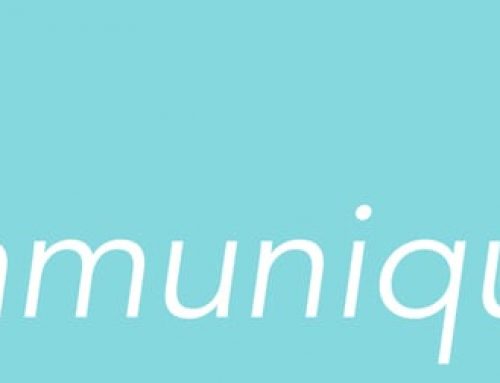The Australian Drama Education Magazine (ADEM) is a free digital publication for Drama Australia members.
2024 Themed Edition: KIA TŌNUI – FLOURISH
Our 2024 ADEM theme of KIA TŌNUI – FLOURISH mirrors the 2024 Drama New Zealand & Drama Combined Conference theme. KIA TŌNUI – FLOURISH, as a conference and as a themed edition of ADEM aims to open up space for sharing innovative drama practice and research that acts as a creative remedy for the challenging circumstances of our times.
KIA TŌNUI – FLOURISH will:
- Explore how drama education continues to craft hope, remedy and collective insight to relieve, prevent and counteract the challenges of living in times of unprecedented crisis, inequity and change.
- Celebrate the centrality of radical creative praxis that underpins drama education. How does drama activate transformative (he)artful experiences that are vital to helping us live and learn on a damaged planet? How do we build creative agency, compassion and critical understanding? In what ways does our work strengthen the capacities and ethical imaginations of the people we work with and for?
- Examine new directions and effective methods that have been forged to meet the challenges we face: in our pasts, presents and possible futures.
This edition of ADEM invites articles and teaching resources that share examples of drama education practice highlighting the ways drama, drama educators, and drama education can flourish. We welcome contributions from those sharing work at the KIA TŌNUI – FLOURISH conference and from all drama educators in our community.
Guidelines for contributors are provided below and on the Drama Australia website. Past editions can be viewed on this link on the Drama Australia website.
ADEM Statement of Purpose
ADEM is a practice-based publication for teachers in Early Childhood, Primary, Middle & Senior School, and Tertiary, as well as for drama practitioners.
ADEM aims to provide Drama educators and practitioners in all states and territories with an opportunity to publish and share articles that provide readers with interesting and useful material for their teaching, as well as to keep abreast of innovative and stimulating national and international projects.
ADEM is published once a year and provides:
- A shared journey between pre-service, early childhood, primary, secondary, and tertiary educators, and drama practitioners
- Articles from different states and territories
- National curriculum updates
- Opportunities for educators and practitioners to share their best practices
- Practical strategies to engage and enthuse new generations of learners
- Practical responses to research findings and illustrative material
For further questions about contributing to ADEM, please contact the guest-editors:
Guest-Editors:
- Dr Patricia (Trish) Wells, Aotearoa New Zealand, wells@otago.ac.nz
- Ms Katy Walsh, Australia, walsh63@gmail.com
or via the general ADEM email address: ADEM.Drama.Australia@gmail.com
Contributions should be sent by email by Saturday 9 November 2024
To access the Guidelines for Contributions, please click here.
When submitting a contribution you MUST also sign a release form, which can be found HERE.
For questions about contributing to ADEM, please contact a member of the editorial team at ADEM.Drama.Australia@gmail.com
ADEM was established in 1995 and published until 2008 as a hard copy magazine. Back copies are now available online.
Guidelines for Contributors:
The following style guide is recommended:
- 1000 to 2,500 words (no footnotes)
- Word document
- 12 point Times New Roman font
- Align left
- Headings in bold (use Word Styles gallery if possible) – one level of heading is sufficient
- Standard Australian English spelling
- APA 7th referencing (Author, Date) – see referencing guide
- Number pages (right footer)
- Provide interesting, informative and if possible, illustrative material (pictures are welcome!)
- Include a short bio note (approx. 50 words) for each author at the end of the article using the heading ‘About the Author.’
Author Responsibilities:
- Submitted in the style guide and carefully proof-read for errors.
- Contributions are author’s original work, with all sources properly referenced.
- Permission obtained from all parties involved such as copyright, children’s works (including parents), photographs and images. Drama Australia requires evidence that appropriate permission has been obtained before publishing.
Drama Australia requires evidence of appropriate permission. A release form can be found HERE.




